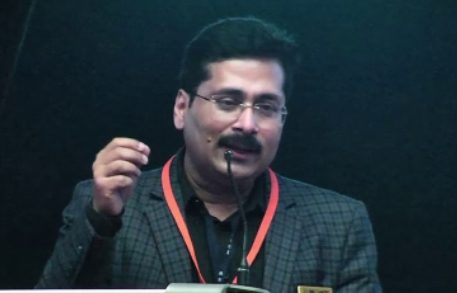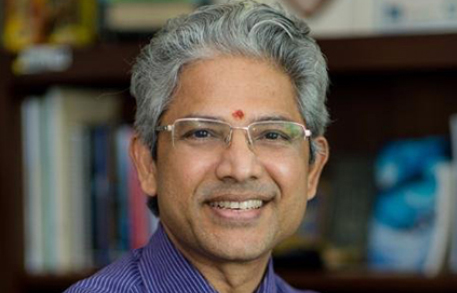Safe sanitation for all is essential for improving public health, providing a clean environment, and breaking the cycle of disease. Countries in South Asia are experiencing rapid urbanization with increasing numbers of people living in slums and growing urban sanitation challenges. Lack of proper sanitation has been a long-running development issue which remains stubbornly difficult to resolve in many places.
India has made considerable progress in providing access to toilets in households and at public places under the Swachh Bharat Mission (SBM). However, sanitation entails more than just building toilets. It is a system that addresses human excreta from generation to its treatment and use. While SBM has promoted on-site sanitation technology options such as pit latrines and septic tanks. the management of faecal sludge resulting from these onsite technologies remains grossly neglected. The design and quality of on-site toilets is also sub-optimal. As a result, cities in India are currently facing a large burden of untreated faecal waste entering the environment causing large public health and environmental risks. The situation is similar in other South Asian cities.
Faecal sludge and septage management (FSSM) includes safe management of sanitation across the sanitation value chain covering safe containment, collection, transport, treatment, and reuse of waste. Furthermore, city-wide inclusive sanitation (CWIS) looks to shift the urban sanitation paradigm and prioritizes equity, public and environmental health and co-existence of a range of solutions - onsite/non-sewered and sewered, centralized or decentralized - tailored to the requirements of the cities. CWIS means focusing on service provision and its enabling environment, and not on building infrastructure alone. While national, state and city governments are prioritizing FSSM and CWIS, they are faced with shortage of knowledgeable and skilled human resources to scientifically plan, implement, and monitor CWIS activities for bringing environment and health benefits to all
This ASCI-ADBI course aims to develop skilled urban professionals equipped with a practical and comprehensive understanding of CWIS by amalgamating global knowledge and best practices with on-field implementation experiences in South Asia. It provides a step by step approach for safe, inclusive, and sustainable management of sanitation in South Asian cities.
Launched in 2020, the course received immense response from the government institutions and other private organizations from across south Asia and beyond. The course was offered for 4 batches till date with a duration of 8-10 weeks and was successful in building 360 practicing change champions in CWIS from across the globe.
The main objective of the course is to equip urban practitioners with knowledge and skills to contribute to the practice and research in city-wide inclusive sanitation. It aims to build a cadre of sanitation professionals to take a leadership role in the sector.
At the completion of the course, participants would be able to:
The course will be delivered over a period of 10 weeks, comprising 13 modules as below:
The course would be delivered using a combination of pedagogical approaches comprising:
a) Self-study of course materials requiring approximately 2-3 hours per week
The course materials comprise policy notes, best practice videos, handbooks, and a slide deck for every module. Weblinks to other relevant literature are provided for additional reading.
b) Experience sharing and direct interaction series for 2 hours duration every week
The participants would benefit from listening to lectures and panel discussions by experts on topics of global relevance every week, usually on Wednesday and Saturday. A range of technology tools (mentimeter, slido etc) were used to make the sessions participative.
c) Social innovations Workshops
The participants would learn about establishing a social business for FSSM through a unique innovation education program started in 2009 at The University of Tokyo by i.school. The i.school's innovation workshop methodology is a useful skill for capacity building and supporting the ongoing initiatives of social issue problem solving. It mainly used analogical thinking and cognitive techniques to develop the right mindset and skillset. A workshop of 3-hour duration would be conducted with a focus on learning the process of ideating and implementing innovative solutions for social issues with a human-centered approach. The online workshop will be conducted on Zoom using a digital tool called APISNOTE developed by i.school.
d) Discussion forums
An online forum will be kept active for the entire duration of the course to facilitate detailed discussions, doubts clarification, and interaction between participants and with the course instructors. Further, topical discussion forums could be created by the participants for detailed exchanges on specific topics of interest. Topics could range from technology to softer aspects such as leadership skills, time management, team building, stakeholder management, media management, negotiations etc.
e) Group interactions
Breakout rooms would be made available for small group interactions on specific areas of interest. These may be guided by the course coordinator or can be managed completely by the participants. Use of breakout rooms is strongly recommended for discussing the required readings prior to online sessions.
f) Case study development
Each participant would develop a real-life case study on any aspect of CWIS as per the guidelines provided. Participants would seek feedback from peers and course directors to refine the case study. Selected case studies would be published and disseminated widely to global audience.
g) Peer learning sessions
Each participant will share the sanitation status, interventions used in achieving City Wide Inclusive Sanitation, short term and medium goals for the city to become CWIS city. This will be guided by the course coordinator to encourage them critically achieve and sustain the interventions implemented in those cities
h) Video based learning and online tools
Video based learning and online tools For interactive learning, various online tools like menti, voliz, slido, thematic discussion rooms will be used.
i) Three-Day Study tour (Optional)
Learning from the best practices is critical for urban practitioners and city professionals. The study tour aims to provide a deeper understanding of CWIS through field visits, demonstrations, and interactions with key stakeholders. The field visits to the cities of Warangal, Hyderabad, and Boduppal will expose the participants to some of the path-breaking CWIS interventions by the Government of Telangana implemented with technical support from ASCI.
The study tour will equip the participants with a practical and comprehensive understanding of CWIS principles being implemented in the field and help in the replication of the interventions in their contexts. The tentative agenda of the three-day tour is as below:
The course uses a continuous learning assessment process to elicit maximum involvement by the participants. The components of assessment are as below:
The course is designed for the policy makers, government practitioners, academics, consultants, sanitation practitioners, professionals from non-profits and corporates, and graduates in the fields of environmental science/ management/ urban planning/ infrastructure planning/ architecture/ civil engineering or allied fields and management with an interest to learn and apply knowledge and skills in the sanitation sector.
Government officials and experts from South Asia and beyond assisting in projects supported by development partners Asian Development Bank, Japan International Cooperation Agency, World Bank would benefit from attending this course. Women are encouraged to apply and are given preference.
The course will be conducted over a period of 10 weeks and requires participants to dedicate about 5 hours a week towards self-study, assignments, case study development, and participation in discussions and workshops. Face to face online interaction will be held with experts every Wednesday and Saturday between 4.00 to 5.30 pm predominantly. The schedule is as below
8 July 2023
15 July 2023
16 July to 22 September 2023
23 September 2023
A three-day study tour is offered to all participants from 22th to 24th August 2023. The course fee includes airport pickup and drop, local transport, accommodation, hospitality, field visits, and course materials. Participants are required to organize and bear the cost of travel from their location of stay/work to Hyderabad and return. No DSA will be provided to the participants.
Administrative Staff College of India (ASCI) is a think-tank that provides advisory, training and research support to administrators and managers at functional and policy levels in government, industries and service sectors in India and beyond. It has established a strong presence in the areas of urban governance particularly focusing on urban water and sanitation. Government of India (GoI) has recognized ASCI as a Centre of Excellence and as capacity building hub under various centrally sponsored schemes.
The Asian Development Bank Institute (ADBI) is the Tokyo-based think tank of the Asian Development Bank, a multilateral development bank for Asia and the Pacific. ADBI conducts evidence-based policy research and capacity building and training programs for eliminating poverty and promoting sustainable, inclusive, and resilient growth across the region.

Director, Centre for Environment, Urban Governance, and Infrastructure Development (CEUG&ID), Administrative Staff College of India (ASCI)
Read More
Senior Consulting Specialist for capacity building and training projects, Asian Development Bank Institute (ADBI)
Read More
Assistant Professor, Centre for Environment, Urban Governance & Infrastructure Development (CEUG&ID), Administrative Staff College of India (ASCI)
Read MoreSenior Research Fellow, ASCI
Senior Research Associate, ASCI
Research Associate, ADBI
Copyright © 2020 . all rights reserved. | Privacy Policy | Developed by dias.works